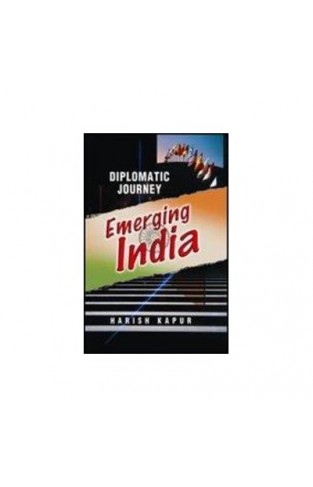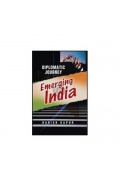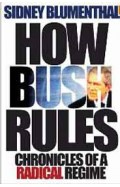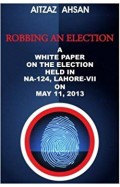- Home
- Categories
- Non Fiction
- Politics & Current Affairs
- Diplomatic Journey: Emerging India Hardcover – 30 Mar. 2004
Diplomatic Journey: Emerging India Hardcover – 30 Mar. 2004
By: Harish Kapur
-
Rs 2,142.00
- Rs 2,380.00
- 10%
You save Rs 238.00.
Due to constant currency fluctuation, prices are subject to change with or without notice.
We're offering a high discount on this book as it is slightly damaged
In this book, the author deals with the totality of India's Foreign Policy since its independence in 1947. The focus of the book is on how India's Foreign Policy is determined, what are its permanent features and who decides its framework. It is divided in three parts. Part I is devoted to an analysis of the environment factors (domestic, regional and global) that influence India's Foreign Policy. Part II conceptualises India's foreign policy goals - the goals of security, of modernisation, of regional hegemony and of international role playing. Each of them has been defined, analysed and evaluated. Part III deals with decision making process. First of all the author deals with the different institutions that are concerned with foreign policy, and evaluates their role and their impact. But the most interesting aspect of this part is the decision maker. Here author focusses on the Prime Ministers of India and their role in India's Foreign Policy.
We're offering a high discount on this book as it is slightly damaged
In this book, the author deals with the totality of India's Foreign Policy since its independence in 1947. The focus of the book is on how India's Foreign Policy is determined, what are its permanent features and who decides its framework. It is divided in three parts. Part I is devoted to an analysis of the environment factors (domestic, regional and global) that influence India's Foreign Policy. Part II conceptualises India's foreign policy goals - the goals of security, of modernisation, of regional hegemony and of international role playing. Each of them has been defined, analysed and evaluated. Part III deals with decision making process. First of all the author deals with the different institutions that are concerned with foreign policy, and evaluates their role and their impact. But the most interesting aspect of this part is the decision maker. Here author focusses on the Prime Ministers of India and their role in India's Foreign Policy.
Diplomatic Journey: Emerging India Hardcover – 30 Mar. 2004
By: Harish Kapur
Rs 2,142.00 Rs 2,380.00 Ex Tax :Rs 2,142.00
Zubin Mehta: A Musical Journey (An Authorized Biography)
By: VOID - Bakhtiar K. Dadabhoy
Rs 472.50 Rs 1,050.00 Ex Tax :Rs 472.50
Londonistan: How Britain is Creating a Terror State Within
By: Melanie Phillips
Rs 180.00 Rs 200.00 Ex Tax :Rs 180.00
And Another Thing... (The Hitchhiker's Guide to the Galaxy)
By: Eoin Colfer
Rs 355.50 Rs 395.00 Ex Tax :Rs 355.50
How Bush Rules Chronicles of a Radical Regime
By: Sidney Blumenthal
Rs 1,782.00 Rs 1,980.00 Ex Tax :Rs 1,782.00
Myths Illusions and Peace: Finding a New Direction for America in the Middle East
By: Dennis Ross
Rs 985.50 Rs 1,095.00 Ex Tax :Rs 985.50
The Origins of Political Order From Prehuman Times to the French RevolutioN
By: Francis Fukuyama
Rs 3,505.50 Rs 3,895.00 Ex Tax :Rs 3,505.50
Manning Up: How the Rise of Women Has Turned Men into Boys
By: Kay Hymowitz
Rs 646.75 Rs 995.00 Ex Tax :Rs 646.75
The Obama Syndrome: Surrender At Home War Abroad
By: Tariq Ali
Rs 1,165.50 Rs 1,295.00 Ex Tax :Rs 1,165.50
The Quest For Meaning: Developing A Philosophy Of Pluralism
By: Tariq Ramadan
Rs 1,255.50 Rs 1,395.00 Ex Tax :Rs 1,255.50
Londonistan: How Britain is Creating a Terror State Within
By: Melanie Phillips
Rs 180.00 Rs 200.00 Ex Tax :Rs 180.00
And Another Thing... (The Hitchhiker's Guide to the Galaxy)
By: Eoin Colfer
Rs 355.50 Rs 395.00 Ex Tax :Rs 355.50
How Bush Rules Chronicles of a Radical Regime
By: Sidney Blumenthal
Rs 1,782.00 Rs 1,980.00 Ex Tax :Rs 1,782.00
No recently viewed books available at the moment.
Zubin Mehta: A Musical Journey (An Authorized Biography)
By: VOID - Bakhtiar K. Dadabhoy
Rs 472.50 Rs 1,050.00 Ex Tax :Rs 472.50
Diplomatic Journey: Emerging India Hardcover – 30 Mar. 2004
By: Harish Kapur
Rs 2,142.00 Rs 2,380.00 Ex Tax :Rs 2,142.00
Londonistan: How Britain is Creating a Terror State Within
By: Melanie Phillips
Rs 180.00 Rs 200.00 Ex Tax :Rs 180.00
And Another Thing... (The Hitchhiker's Guide to the Galaxy)
By: Eoin Colfer
Rs 355.50 Rs 395.00 Ex Tax :Rs 355.50
How Bush Rules Chronicles of a Radical Regime
By: Sidney Blumenthal
Rs 1,782.00 Rs 1,980.00 Ex Tax :Rs 1,782.00














-120x187.jpg?q6)











-120x187.jpg?q6)





